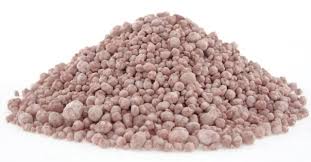
Hul . 23, 2024 14:29 Back to list
Understanding the Benefits of Ammonia-Based Fertilizers for Thriving Garden Growth and Health
The Role of Ammonia in Garden Fertilizers
Ammonia, a colorless gas with a pungent odor, plays a significant role in the production and effectiveness of garden fertilizers. It is a nitrogen-rich compound that is essential for plant growth, acting as a vital nutrient that supports various physiological processes. In the realm of gardening, understanding the importance of ammonia and its derivatives in fertilizers can significantly enhance plant health and yield.
The Importance of Nitrogen in Plant Growth
Nitrogen is one of the three primary macronutrients that plants require for optimal growth, alongside phosphorus and potassium. It is a key component of amino acids, the building blocks of proteins, and is integral to the production of chlorophyll, which is essential for photosynthesis. Without adequate nitrogen, plants will exhibit stunted growth, yellowing leaves, and reduced yields. This is where ammonia comes into play.
Ammonia and Its Fertilizer Compounds
Ammonia (NH₃) can be directly applied to soils or converted into various nitrogen fertilizers. Two common forms are ammonium sulfate (NH₄)₂SO₄ and urea, both containing nitrogen in a readily available form for plants. These fertilizers can be synthesized from ammonia and are particularly effective because they provide a quick release of nitrogen, allowing plants to access this essential nutrient right when they need it.
1. Ammonium Sulfate This compound not only supplies nitrogen but also sulfur, another essential nutrient that aids in chlorophyll production and overall plant health. It is especially beneficial for acid-loving plants and is often used in gardens with alkaline soils.
2. Urea Urea is the most widely used nitrogen fertilizer worldwide. When applied to the soil, it undergoes a process of hydrolysis, converting into ammonium carbonate and eventually releasing ammonium ions that plants can absorb. Urea is favored for its high nitrogen content and relatively low cost.
ammonia garden fertilizer

Benefits of Using Ammonia-Based Fertilizers
The application of ammonia-based fertilizers presents several benefits
- Immediate Nutrient Availability Ammonium forms of nitrogen are readily available for plant uptake, making them effective for quick fertilization needs, such as during rapid growth phases. - Soil Health Ammonia can help improve soil structure and fertility. It contributes to the microbial activity in the soil, which is essential for breaking down organic matter and promoting nutrient cycling. - Enhanced Yield Proper nitrogen management, through ammonia-based fertilizers, can lead to increased crop yields. This is particularly important for farmers and gardeners aiming for maximum productivity in a limited space.
Best Practices for Application
While ammonia and its derivatives are beneficial, careful application is essential to avoid potential drawbacks. Excessive use can lead to nutrient runoff, which can harm local waterways through eutrophication. Moreover, high nitrogen levels can cause plants to become overly lush and susceptible to diseases. Here are a few best practices for using ammonia-based fertilizers
1. Soil Testing Before applying any fertilizer, conducting a soil test will help determine existing nutrient levels and avoid over-fertilization. 2. Follow Recommended Rates Adhere to the recommended application rates on fertilizer packages, adjusting based on specific plant needs and growth stages. 3. Incorporation into Soil If using granular fertilizers, incorporate them into the soil to minimize nitrogen loss through volatilization and ensure better absorption by roots.
Conclusion
In conclusion, ammonia plays a critical role in the formulation of effective garden fertilizers, providing essential nitrogen that supports healthy plant growth. By understanding how to utilize ammonia and its derivatives responsibly, gardeners can significantly enhance their cultivation efforts, leading to thriving gardens filled with healthy, robust plants. With careful management, ammonia-based fertilizers can yield fruitful results in both home gardens and larger agricultural settings.
-
High-Efficiency Plant Soil Water Soluble Fertilizer Reliable Manufacturer
NewsApr.29,2025
-
High-Potassium Organic K Fertilizer 7-2-4 Supplier & Manufacturer
NewsApr.29,2025
-
10-54-10 High-Phosphate Fertilizer NPK Blend for Root Growth
NewsApr.28,2025
-
NPK 8-2-12-4 & 20-20-20 Compound Fertilizer Suppliers Crop Boost
NewsApr.28,2025
-
Premium 50 lb Fertilizer Bags Bulk Supplier & Factory Deals
NewsApr.28,2025
-
Different Types of NPK Fertilizer Manufacturer & Supplier Custom Blends
NewsApr.28,2025
